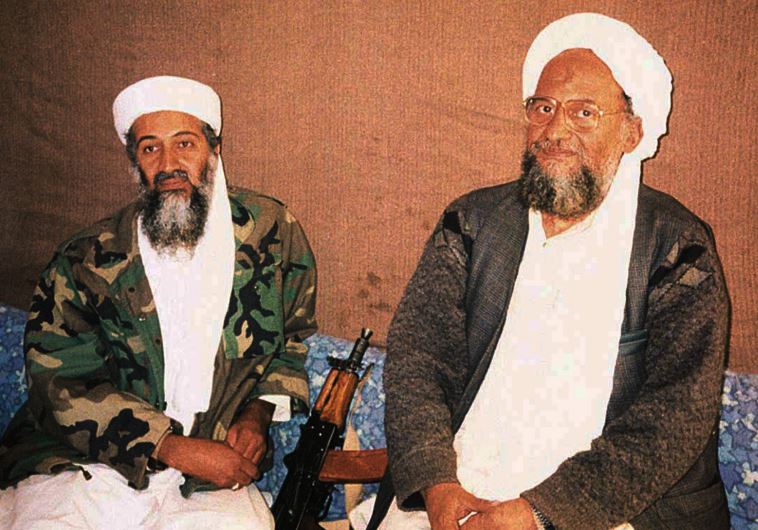Al-Qaida chief calls ISIS illegitimate but remains open to cooperation against US, Shi'ites
In an audiotape on the internet, Zawahri said: "We don't recognize this caliphate."
 al-Qaida cheif Ayman al-Zawahiri sits with predecessor Osama Bin Laden during an interview in 2001 Updated:
al-Qaida cheif Ayman al-Zawahiri sits with predecessor Osama Bin Laden during an interview in 2001 Updated: